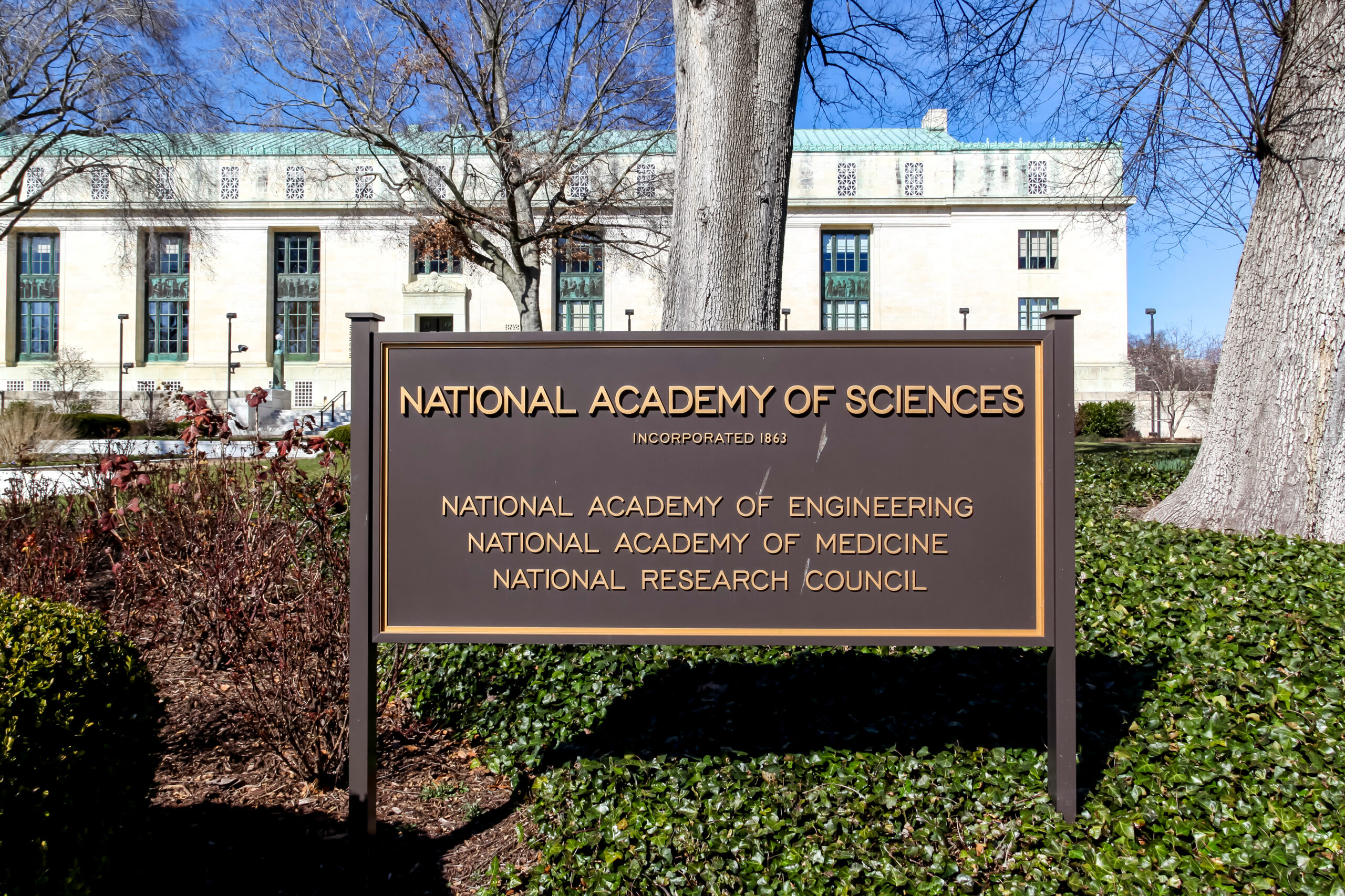Top US Scientists Write Open Letter To The American People: “We See Real Danger In This Moment”

Science isn’t just something that happens in labs or universities. It’s the heartbeat of every day—the reason your smartphone works, the reason doctors can save lives, and why your morning weather app is almost always right. It’s woven into the very fabric of our lives, shaping everything from the food we eat to the cars we drive. And yet, there’s something deeply unsettling happening right now: the very system that nurtures and protects this essential knowledge is under attack.
That’s the position we’re in right now. Over 1,000 of the most respected scientists in the United States—Nobel laureates, university presidents, and researchers who’ve spent decades studying reality—have come together with a rare and urgent message: “We see real danger in this moment.” Their open letter to the American public isn’t wrapped in scientific jargon. It’s a warning. A plea. A line in the sand.
This isn’t just about climate or COVID or what’s taught in classrooms. It’s about truth itself—who defines it, who defends it, and what happens when we start turning away from it. And when the people who literally decode how the world works start speaking like this, it’s not business as usual.
Science: The Silent Engine Powering Your Daily Life

We don’t often pause to think about it, but every aspect of our modern lives is built on the foundation of science. From the moment we wake up to the sound of an alarm, to the cup of coffee we brew, to the GPS that guides us to work, science is at work behind the scenes. Medicine keeps us healthy, technologies keep us connected, and innovation keeps pushing us forward. Think about it: the phone in your pocket, the car you drive, even the food on your table—all of it is the result of years, sometimes centuries, of scientific discovery and innovation.
It’s not just about gadgets and conveniences, though. Science is the reason we have vaccines that protect us from deadly diseases, the reason environmental policies exist to safeguard our air and water, and the reason we can tackle complex global issues like climate change, energy shortages, and pandemics. Science gives us the tools to solve problems that seemed impossible just a generation ago.
Yet, trust in science is more than just about believing the facts—it’s about understanding that behind every discovery is a person, a community of people, working to make life better for all of us. It’s about acknowledging the collective responsibility we have to safeguard this knowledge, because if we allow science to be compromised, we risk losing the very advancements that have improved our quality of life and safeguarded our future.
In this moment, more than ever, we need to reflect on the value of science. It’s not a luxury or a side issue—it’s the core of our progress. And when scientists come together to warn us about threats to this core, we must listen, because the stakes couldn’t be higher.
The Urgent Call from 1,900 Scientists

In an unprecedented move, over 1,900 leading scientists from across the United States have come together to issue a public plea—a wake-up call for the American people. These are not just any scientists. These are experts from the National Academies of Sciences, Engineering, and Medicine, organizations known for their evidence-based, unbiased advice to the government. These researchers are united by one urgent message: the nation’s scientific enterprise is in peril.
The letter they’ve written doesn’t come from a place of politics, but from a place of deep concern. “We are speaking out as individuals. We see real danger in this moment,” they state, as they issue a clear and powerful warning to the public. They are not speaking as partisans, but as guardians of truth, who understand that scientific inquiry is vital for the progress of society. The threats they describe are far-reaching and destructive, targeting the very core of what makes science—and by extension, progress—possible.
The scientists are sounding the alarm about a growing trend: the systematic dismantling of research funding, the increasing pressure on researchers to conform to ideological agendas, and the efforts to suppress scientific findings that contradict certain political narratives. This is not a minor issue—it’s a crisis that threatens the very integrity of the nation’s research community.

The letter draws attention to several critical actions taken by the Trump administration, such as massive cuts to funding for scientific research, a refusal to support critical studies on climate change, and the pressure to silence findings that don’t align with political beliefs. These actions, the letter suggests, are not just bad for science—they’re bad for the country. If we allow this assault on science to continue, we risk falling behind in global innovation, technology, and healthcare, potentially losing our place as leaders on the world stage.
The scientists warn that it’s not just their livelihoods at stake. The consequences extend far beyond academia. Research into life-saving treatments, climate solutions, and technological advances is being compromised. The loss of federal funding and the chilling effects of political interference are driving researchers out of their fields, abandoning projects, and even self-censoring their work for fear of retribution.
Now, these scientists are not only appealing to policymakers—they’re reaching out directly to the American people. They know that the future of science lies in our hands. And they need us to stand with them, to protect the integrity of research, and to ensure that science remains a tool for truth, not a political weapon. This is a call for unity and action, a plea to recognize what’s at stake before it’s too late.
The Destruction of America’s Scientific Edge
Funding for scientific agencies has been slashed to the bone. Thousands of researchers have lost their jobs, and with them, their ability to continue crucial work in fields like environmental science, medicine, and technology. This isn’t just about losing academic jobs—this is about halting vital progress in understanding and solving the problems that impact everyone, from curing diseases to addressing the environmental crisis.
Take, for example, the National Oceanic and Atmospheric Administration (NOAA). Researchers here play a key role in tracking weather patterns and studying climate change, vital work that protects lives and informs policy. Under the current administration, many of these experts have been let go, weakening the agency’s ability to forecast weather accurately and address climate risks. When we lose these scientists, we lose our ability to predict and prepare for the challenges ahead.
And it’s not just the environment that’s at risk. The health and well-being of the American people is in jeopardy as well. Research into new treatments for diseases like cancer, Alzheimer’s, and even the flu is being compromised. Federal funding for these projects has been reduced, and some researchers are being forced to abandon their studies altogether due to a lack of support. The message here is clear: scientific progress is being sacrificed for short-term political gains.

The Trump administration’s investigation into more than 50 U.S. universities adds another layer of uncertainty. These universities—many of which are world-renowned for their research and innovation—are now under threat of having their federal funding revoked unless they comply with political directives. Columbia University, for example, was recently informed that its federal funding would be withheld unless it restructured its policies and targeted a particular academic department. This kind of interference destabilizes higher education, erodes academic freedom, and stifles the very research that keeps the U.S. at the cutting edge of innovation.
At its core, this is about more than just dollars and degrees. It’s about the future of our country and the kind of world we want to leave for future generations. If the U.S. continues down this path, we risk losing our global edge in research and technology. Other nations are already stepping up, investing in their scientific enterprises, and positioning themselves to lead the way in groundbreaking advancements. As other countries push forward with new discoveries, America could find itself trailing behind, with its research institutions weakened and its scientific community fractured.
We must ask ourselves: How much are we willing to sacrifice to protect political ideologies that stand in the way of progress? What happens when we no longer have the innovation, the technologies, or the medical breakthroughs that once made our country a beacon of hope and possibility? The consequences of this assault on science could take decades to undo, and the damage may already be irreversible. The time to act is now, before we lose what makes America a leader in innovation and discovery.
A Threat to Health, Economy & Security

The attack on America’s scientific community has real, far-reaching consequences. The research being undermined today doesn’t just affect academic circles—it impacts our everyday lives. From the air we breathe to the medications we rely on, a weakened scientific community means fewer advancements in health, technology, and the environment.
Consider healthcare. Scientists are behind every breakthrough—from cancer treatments to vaccines. When funding is slashed and researchers are silenced, progress grinds to a halt. It means critical treatments may not reach the public in time, and lives are lost in the process. The public’s health and safety are directly tied to the vitality of our scientific institutions.
The effects are similarly dire when it comes to climate change. Censoring research and ignoring data hinders our ability to address the environmental challenges we face. The natural disasters that have become increasingly frequent—wildfires, hurricanes, and flooding—are not just unfortunate events. They are the result of the climate crisis that scientists have warned us about. If research on climate change is suppressed, we risk exacerbating these disasters and missing the chance to act before irreversible damage is done.
Moreover, America’s diminishing role in scientific research opens the door for other countries to lead the charge. Nations like China, India, and Germany are ramping up investments in research and development. As the U.S. falls behind, these countries are making breakthroughs in renewable energy, artificial intelligence, and medical technologies. Their economies will grow stronger, and their industries will thrive, while America risks losing its competitive edge.
In today’s global economy, scientific innovation is the driver of success. Countries that prioritize research fuel economic growth, create jobs, and position themselves at the forefront of technological and medical advancements. If America continues to neglect its scientific enterprise, it will fall further behind, ceding leadership in critical fields to other nations.
This isn’t just a loss of prestige; it’s a loss of opportunity. The American people deserve access to the life-saving technologies, clean energy solutions, and new discoveries that science can provide. If we fail to protect science now, we risk being left behind as the rest of the world moves forward.
Science in Crisis: The Fight for Our Future

The message from over 1,900 scientists is clear: we’re facing an urgent crisis, and the time to act is now. The threats to America’s scientific enterprise are not abstract—they are tangible and real, affecting everything from our health to our economy to our global position as leaders in innovation. If we allow these attacks to continue, we risk losing the very advancements that have shaped our modern world.
But there’s hope. We, the people, have the power to change this. We must stand with the scientific community, support independent research, and demand that our leaders prioritize truth and evidence over political agendas. Our future depends on it. If we let science be silenced, we all lose—because science isn’t just for scientists; it’s for all of us.
It’s time to take action, to amplify the voices calling for change, and to ensure that science remains a beacon of progress. Together, we can protect the knowledge and discoveries that will shape a better tomorrow. Let’s make sure the voice of science is not silenced. The stakes are too high.
Featured Image Source: Shutterstock
Loading...






